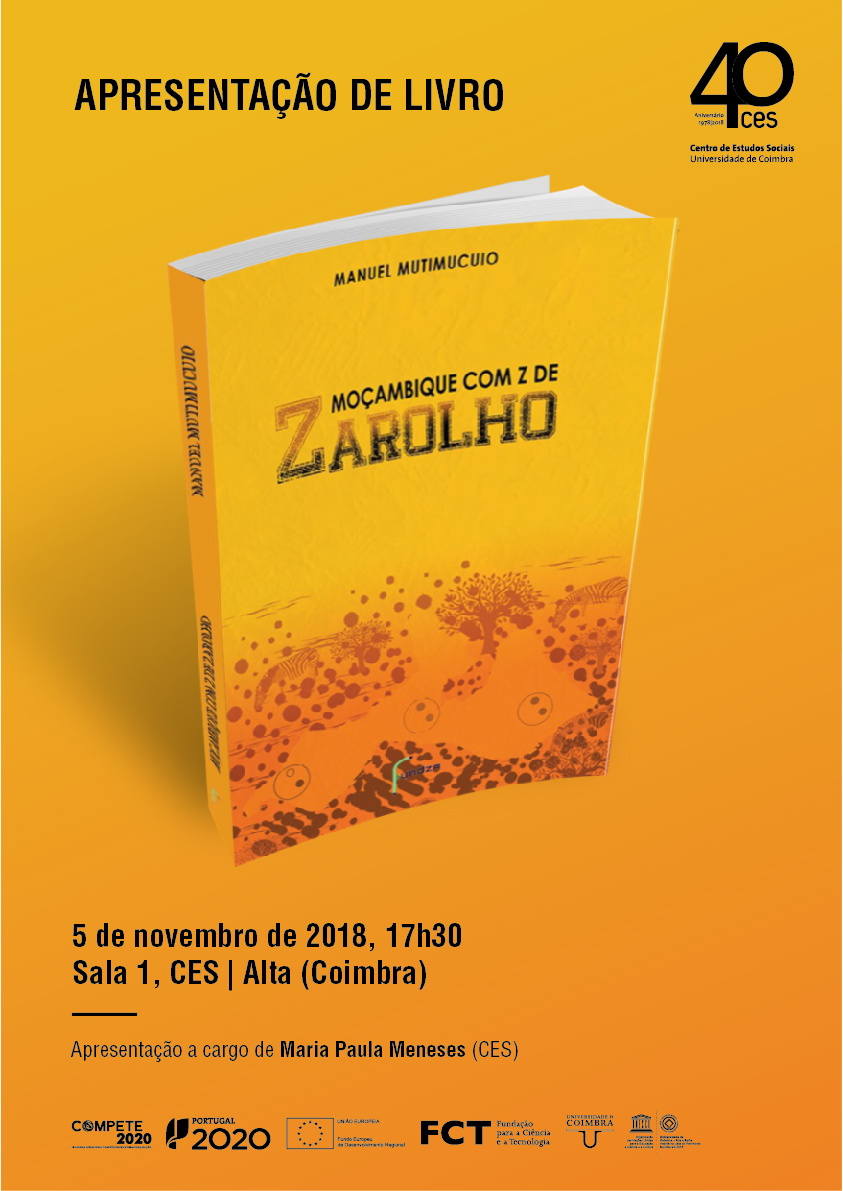Book presentation
«Moçambique com Z de Zarolho» by Manuel Mutimucuio
November 5, 2018, 17h30
Room 1, CES | Alta
With Maria Paula Meneses (CES) and the author.
About the book:
(...) '' Mozambique with a crossed-eyed z is a story about how, on certain occasions, culture is something fundamentally political, hence the future of the characters be calculated from the language - as an instrument that ensures apprehension, transformation and transmission of their own culture - by MPs. In this fiction, we find two important entities: Djassi, an MP of the Assembly of the Republic, representing handsome men, those who have power and are, from time to time, a victim of it, and Hohlo, a domestic employee representing the disadvantaged class, especially those seeking an opportunity for social advancement in the country's capital. Through these two figures, both humble in their condition, Mutimucuio builds and rebuilds a possible Mozambique, apart from a comfort based on the colonial heritage.
Indeed, the author, with a very daring sociological gaze and boldness, puts his characters to discuss the necessity of the country of replacing the official language or adopting another one, English, either because Portuguese is decadent or because the Mozambicans themselves, in history - and in reality as well - are absorbed by England's greater cultural heritage. In this way, Manuel Mutimucuio synthesizes what goes on Mozambicans' (sub)conscious, no matter how insipid, plays with it and projects a direction, whose purpose, by far, will continue to hurt the majority, the miserable ones or, if we want, the masses. This is a book which, by questioning the status quo, shows us that there are unalterable circumstances: the condition of the humiliated. In this, the author wages on enough cruelty to make Hohlo into what, perhaps, the reader does not want, even though it is relevant to the emotional imbalances generated by the plot.
Moçambique com z de zarolho helps us to identify the transformations of social order in our existential plane. Parallel to this, it gives us the direction to which the country walks and at what pace«. [José Remédios, O País] full text HERE]


